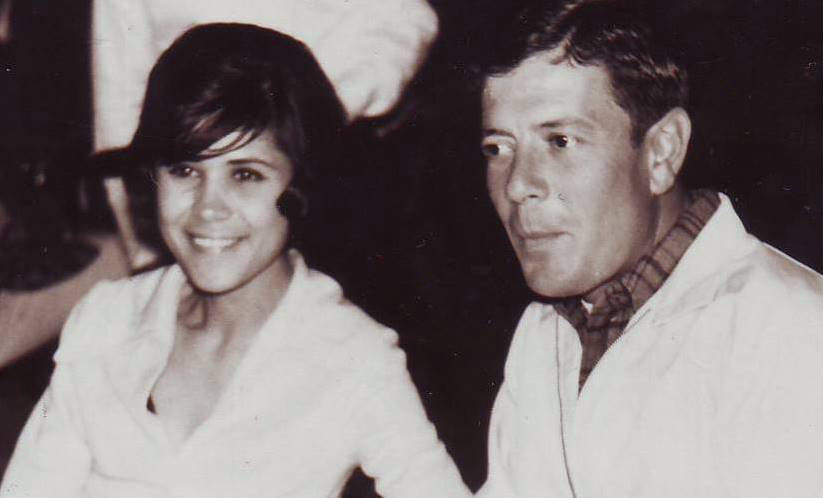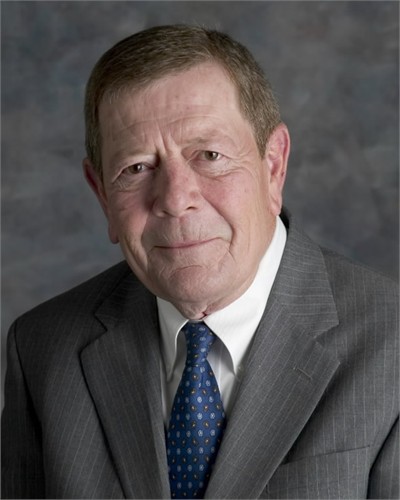He hired skilled assistants and a slew of young lawyers who went on to become defense lawyers, judges and federal prosecutors — some of whom tried unsuccessfully to take his job.
He oversaw the transition to a paperless, electronic-filing office and later telecommuted, working from home during the months he went through treatment for the lung cancer that ultimately took his life Friday. He was 70.
Tarrant County voters first elected Curry, as a Democrat, in 1972. He switched to the Republican Party in the 1980s.
Unlike many of Texas' big-city DAs, Curry for the most part did not cut a high profile, preferring to leave the most aggressive courtroom work to his assistants. That was both a strength of the office and sore spot for critics who tried to paint him as detached and ineffectual.
He last helped try a case in 1977, the notorious trial of oilman Cullen Davis.
At a trial in Amarillo, witnesses pointed to Davis as the masked gunman who injured three people and killed two, Priscilla Davis' boyfriend, Stan Farr, and her 12-year-old daughter, Andrea Wilborn, at the Davis Mansion in west Fort Worth. But a jury acquitted Cullen, at the time Priscilla's estranged husband.
Curry led the office through many more high-stakes prosecutions: Brosky's probation in a racially motivated killing, which sparked public protests and a second trial on expanded charges. Lott's courthouse shooting of five people, two of them fatally, which resulted in his own death sentence. The conviction of fur-company heiress Koslow and two men in a plot that left her stepmother dead and her father injured. Prison for military academy cadets Zamora and David Graham, her one-time boyfriend, in the killing of her romantic rival.
Curry's office, which grew to more than 300 people, adopted practices that served as examples for other DAs, such as an open-file policy allowing defense lawyers to see what evidence the prosecution has on their clients.
Some of those practices lent themselves to praise as well as criticism.
For instance, the Tarrant County DA's office doesn't seek the death penalty as often as counterparts in Dallas and Houston, partly because of the high cost of capital cases. But Curry critics claimed that he avoided some difficult cases to bolster conviction rates.
Voters, however, demonstrated continuing confidence by re-electing Curry despite strong challenges in 2002 and 2006 from a former Tarrant County prosecutor who now works in the Dallas DA's office.
A graduate of Texas Christian University and Baylor law school, Curry found a long-term place in Tarrant County and served us well. Residents will expect his successor to run an office that's fair, efficient and scandal-free, a high standard.
Posted on Mon, Apr. 27, 2009 in the Fort Worth Star Telegram.
He hired skilled assistants and a slew of young lawyers who went on to become defense lawyers, judges and federal prosecutors — some of whom tried unsuccessfully to take his job.
He oversaw the transition to a paperless, electronic-filing office and later telecommuted, working from home during the months he went through treatment for the lung cancer that ultimately took his life Friday. He was 70.
Tarrant County voters first elected Curry, as a Democrat, in 1972. He switched to the Republican Party in the 1980s.
Unlike many of Texas' big-city DAs, Curry for the most part did not cut a high profile, preferring to leave the most aggressive courtroom work to his assistants. That was both a strength of the office and sore spot for critics who tried to paint him as detached and ineffectual.
He last helped try a case in 1977, the notorious trial of oilman Cullen Davis.
At a trial in Amarillo, witnesses pointed to Davis as the masked gunman who injured three people and killed two, Priscilla Davis' boyfriend, Stan Farr, and her 12-year-old daughter, Andrea Wilborn, at the Davis Mansion in west Fort Worth. But a jury acquitted Cullen, at the time Priscilla's estranged husband.
Curry led the office through many more high-stakes prosecutions: Brosky's probation in a racially motivated killing, which sparked public protests and a second trial on expanded charges. Lott's courthouse shooting of five people, two of them fatally, which resulted in his own death sentence. The conviction of fur-company heiress Koslow and two men in a plot that left her stepmother dead and her father injured. Prison for military academy cadets Zamora and David Graham, her one-time boyfriend, in the killing of her romantic rival.
Curry's office, which grew to more than 300 people, adopted practices that served as examples for other DAs, such as an open-file policy allowing defense lawyers to see what evidence the prosecution has on their clients.
Some of those practices lent themselves to praise as well as criticism.
For instance, the Tarrant County DA's office doesn't seek the death penalty as often as counterparts in Dallas and Houston, partly because of the high cost of capital cases. But Curry critics claimed that he avoided some difficult cases to bolster conviction rates.
Voters, however, demonstrated continuing confidence by re-electing Curry despite strong challenges in 2002 and 2006 from a former Tarrant County prosecutor who now works in the Dallas DA's office.
A graduate of Texas Christian University and Baylor law school, Curry found a long-term place in Tarrant County and served us well. Residents will expect his successor to run an office that's fair, efficient and scandal-free, a high standard.
Posted on Mon, Apr. 27, 2009 in the Fort Worth Star Telegram.













